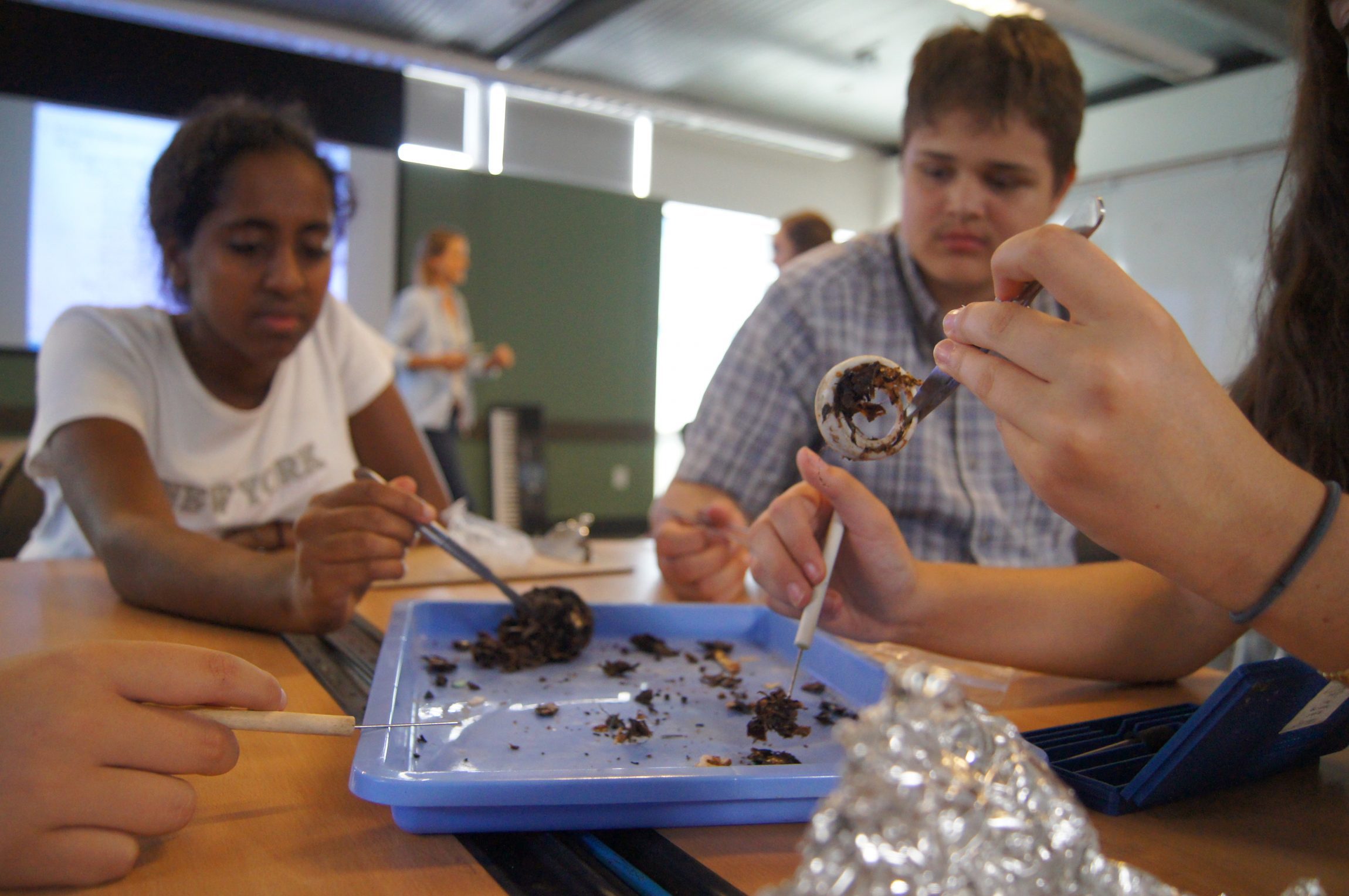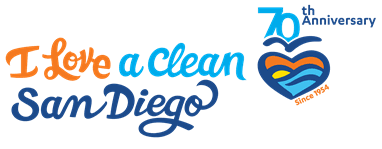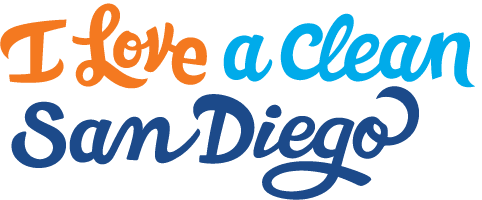
Today’s blog is from our Education Specialist, Grace! Grace is apart of ILACSD’s team of educators which leads thousands of students and adults each year in hands-on activities that showcase how our choices impact the environment around us. Read on for highlights from one of our favorite presentations from last year!
First, a little background.
Plastic has been integrated into almost every facet of our daily lives, from plastic water bottles and grocery bags to polyester clothing and packaged food. It has become so incorporated into our society that often times it is hard to perform routine tasks without the use of plastic. Subsequently, a lot of plastic makes its way into our environment, travels through our waterways, and often finds its way into the ocean. One of the most notable areas where this garbage collects is the Pacific Garbage Patch.
Various animals are impacted by plastics in the environment, through entanglement and ingestion. One animal in particular that has been severely harmed by this trash is the albatross, a seabird that frequents the Pacific Garbage Patch. Through this ingestion of plastics and other trash, many of these birds become malnourished and starve.
How can we make a difference?

In conjunction with our educational programs, students at High Tech High Chula Vista were given the opportunity to witness this tragedy first hand through their dissection of an albatross bolus. Much like an owl pellet, these birds naturally regurgitate indigestible items including squid beaks, and volcanic rocks that help with their digestion, all components of a typical bolus. However, as the students discovered, today’s boluses tell a different story. Students removed fishing line, bottle caps, plastic and foam bits, and polyester fibers from boluses, highlighting the level of impact that we are having on the albatross and other marine organisms. Plastic has become so ubiquitous in the environment and the lives of these albatross that of the 10 boluses the students dissected, 100% of them contained some degree of plastic fragments.

Although many would feel discouraged by these findings, the students at High Tech High Chula Vista felt further empowered to continue their journey toward having a more positive impact on their environment. If you’re looking for simple ways to start reducing your personal plastic usage, consider refusing single-use straws, investing in reusable sandwich bags, and committing to remember your reusable grocery bags. Get started on the right foot by attending I Love A Clean San Diego’s free Zero Waste Home workshop happening this Saturday, January 9th!

Also, keep an eye out for our upcoming blog about the students’ 70 Day Shake-up project and how they integrated creative environmentally friendly habits into their everyday lives!


1 Comment
good creative
Comments are closed for this article!